ORIGINAL ARTICLE:公共事務中心 (2023-05-12)
The Center for Teaching and Learning Development and the Research Ethics Center of the Office of Research and Development at National Taiwan Normal University (NTNU) held the “2023 Lecture on Research Ethics in Teaching Practice Research Projects” on May 11. The event was hosted by Director Yi-Wei Lai of the Teaching Development Center and featured a keynote by Professor Yu-Kai Chang from the Department of Physical Education and Sport Sciences, who is a recipient of the NSTC Outstanding Research Award and recognized for excellence in the Ministry of Education’s teaching practice projects. His speach, titled “Research Ethics of MOE University Teaching Practice Research: Application Practice” aimed to share valuable knowledge and experience with educators planning to apply for or currently executing such research projects.
Professor Chang currently serves as a reviewer on the university’s Research Ethics Review Committee. His lecture focused on the relationship between the Ministry of Education’s Teaching Practice Research Projects and Research Ethics Committees (RECs). He began by outlining the “What,” “Why,” and “How” of research ethics, introducing the origins and differences between Institutional Review Boards (IRBs) and Research Ethics Committees (RECs). He elaborated on the necessity of ethics review and explained both domestic and international systems, the historical development of ethics review in Taiwan’s National Science and Technology Council (NSTC), and relevant legal regulations.
“Research refers to a systematic process of inquiry,” Professor Chang explained. He noted that research encompasses a wide range—from the universe and nature to the human body and animals. The Ministry of Education’s Teaching Practice Research Project, launched in 2017, differs from traditional research projects in that its primary goal is to enhance the quality of teaching. It emphasizes how educators can use systematic inquiry and critical reflection to address real-world challenges in teaching environments.
Once a teacher’s practical teaching activities enter the realm of research, they must undergo REC review. Using sports science as an example, Professor Chang noted that articles submitted to related journals must be reviewed by REC. Although the Ministry of Education and the NSTC focus primarily on the “research” aspects, projects must still pass ethical review before approval. This requirement highlights the critical role of RECs, as they help protect the safety rights of participants and support researchers in carrying out their projects, creating a win-win situation for academic progress and ethical practice.
Professor Chang emphasized that when applying for Teaching Practice Research Project, researchers should pay extra attention to prepare the section on ethical review. He highlighted that the approval date and the validity period of the review certificate differ and must be monitored closely. Consent forms for final reports must fall within the certificate’s valid period, and the number of participants must not exceed those stated in the original proposal. Importantly, he noted that as of January 1 this year, Taiwan’s Civil Code has lowered the legal age of adulthood to 18, meaning that freshmen participating in research can now give consent themselves without requiring a guardian’s signature.
In addition to a post-lecture Q&A, the Research Ethics Center provided various resources for further assistance, including the NTNU Research Ethics Review System User Manual and an official LINE account for inquiries. At the end of the lecture, Professor Chang quoted U.S. Supreme Court Justice Potter Stewart to underscore the essence of ethics:
“Ethics is knowing the difference between what you have a right to do and what is right to do.”
This quote left the audience with a lasting reflection on the true meaning of research ethics.
Written by: Campus Reporter Lou Li-Jia, Department of Chinese 2023 / Edited by: Chang Shih / Proofread by: Hu Shih-Tse (English Version Powered by ChatGPT, Edited by Serena H.)
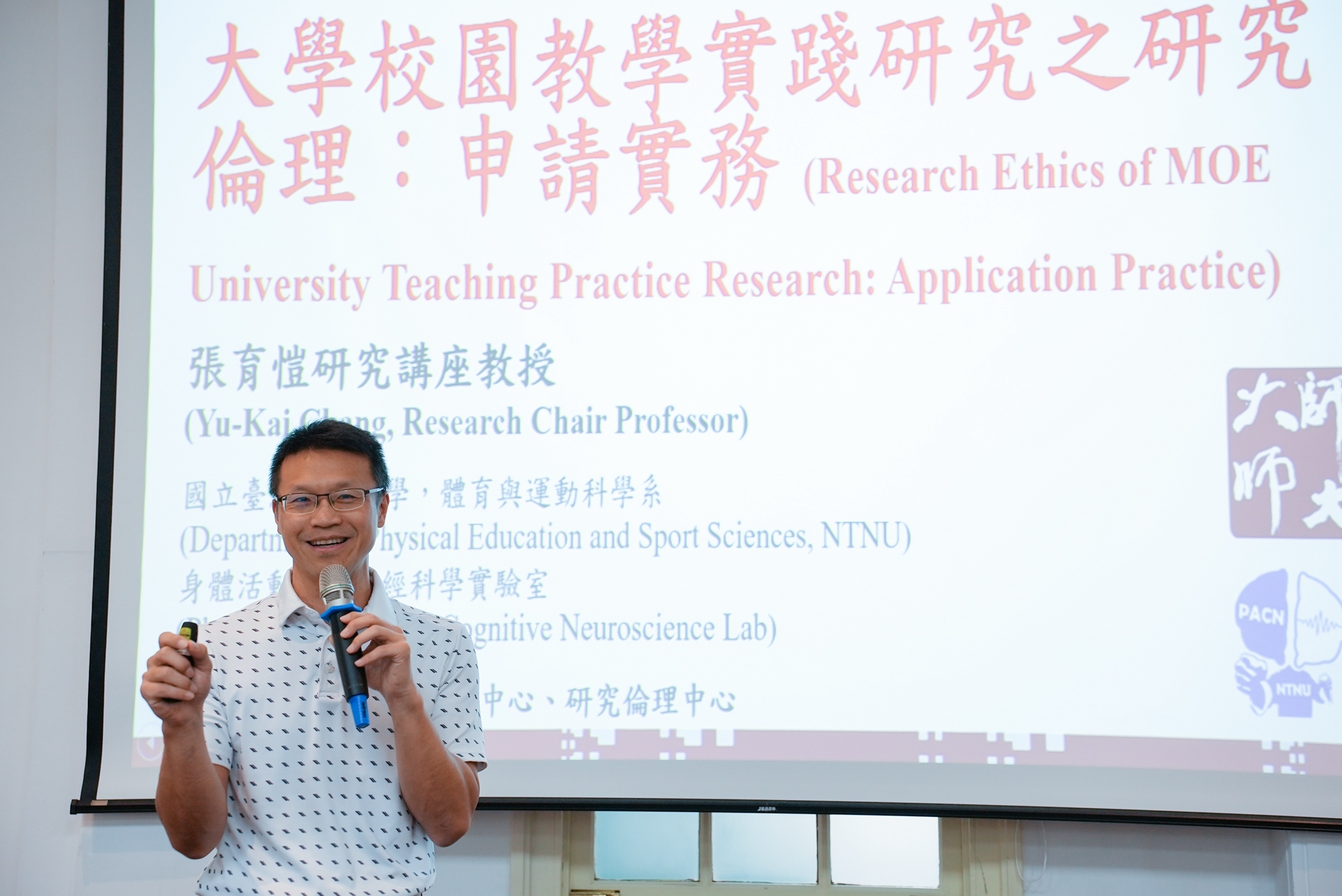
臺師大體育與運動科學系張育愷研究講座教授,分享講題為「大學校園教學實踐研究之研究倫理:申請實務」
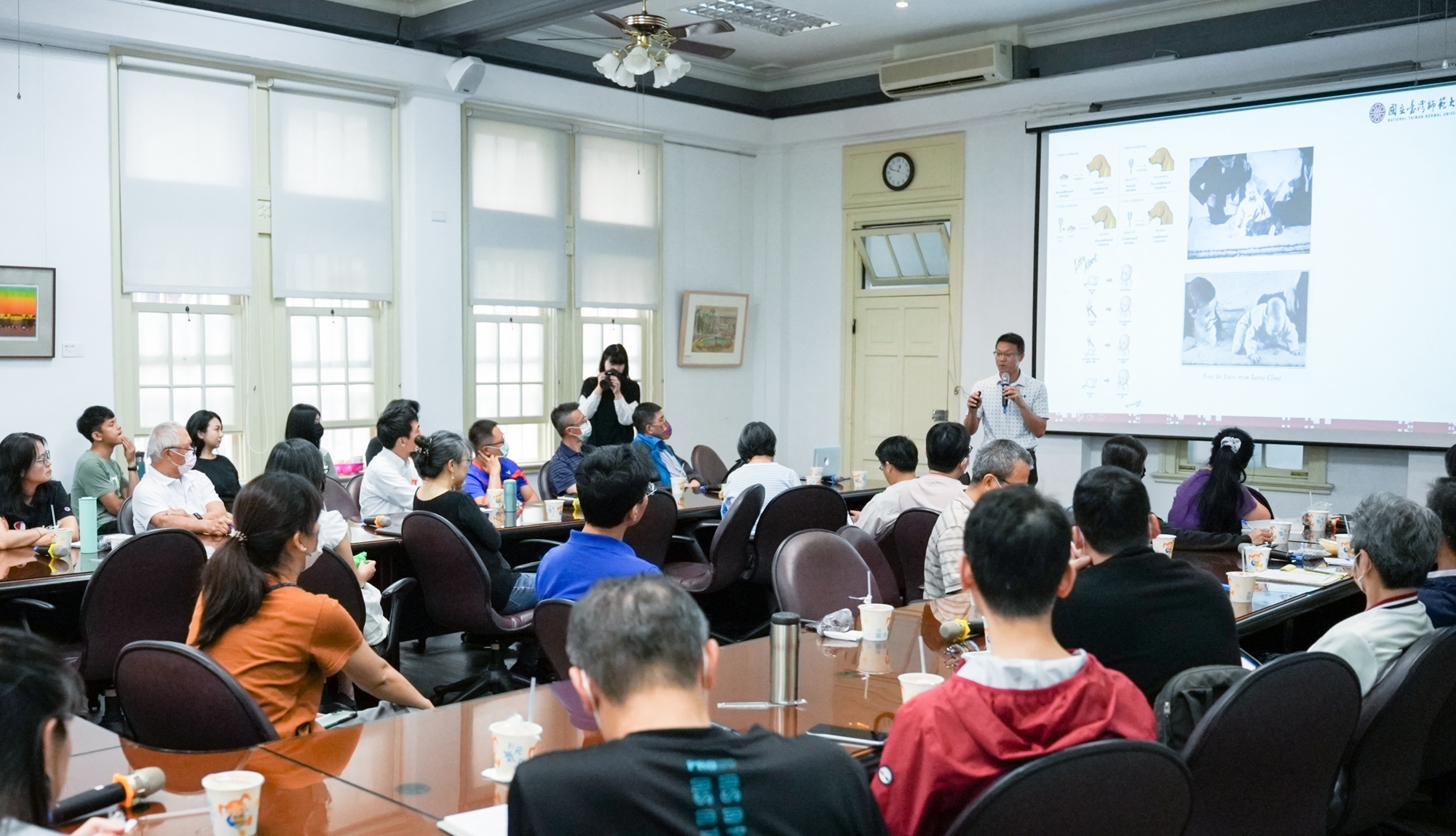
張育愷教授分享過去研究倫理案例實務
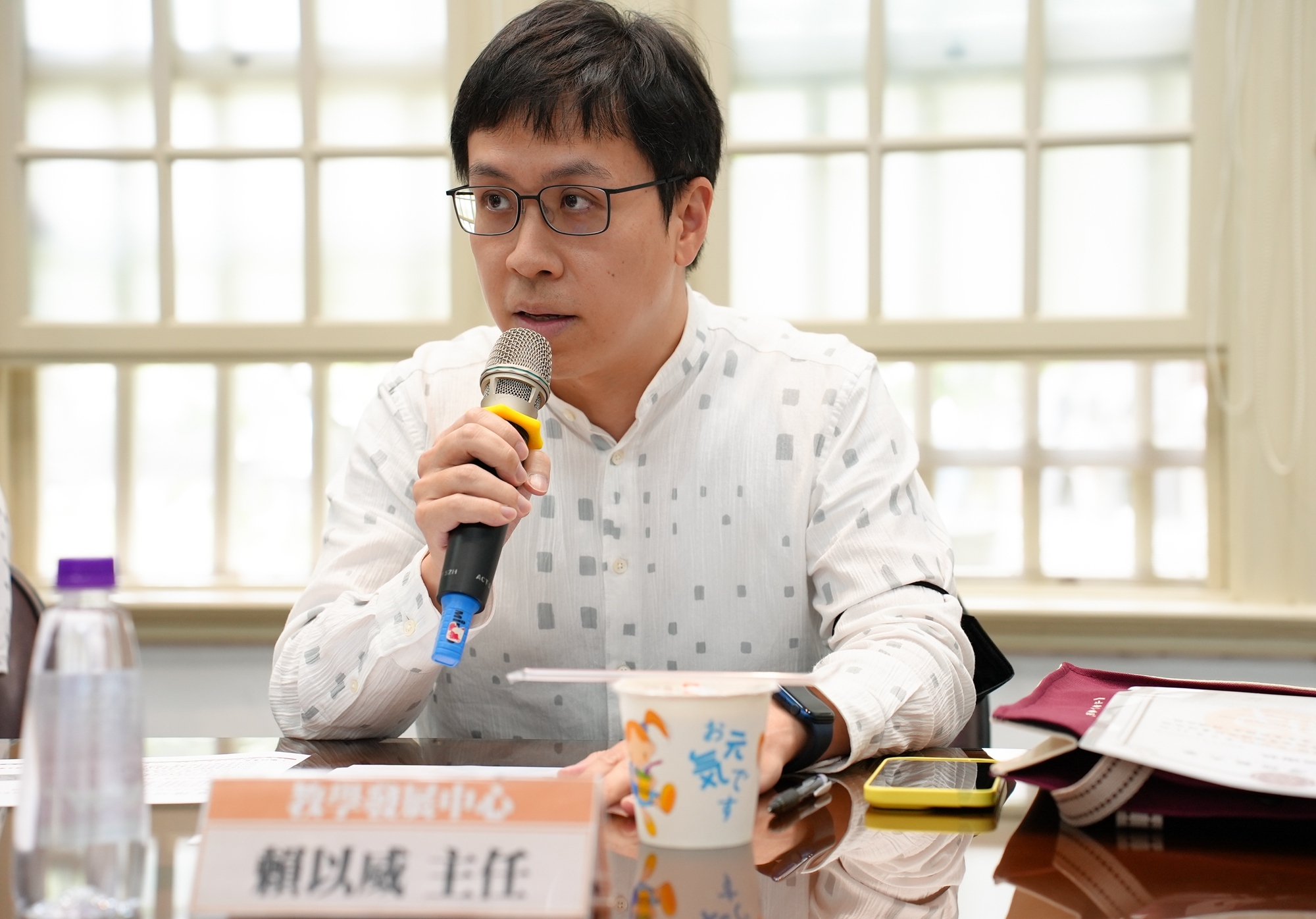
臺師大教務處教學發展中心賴以威主任主持開場
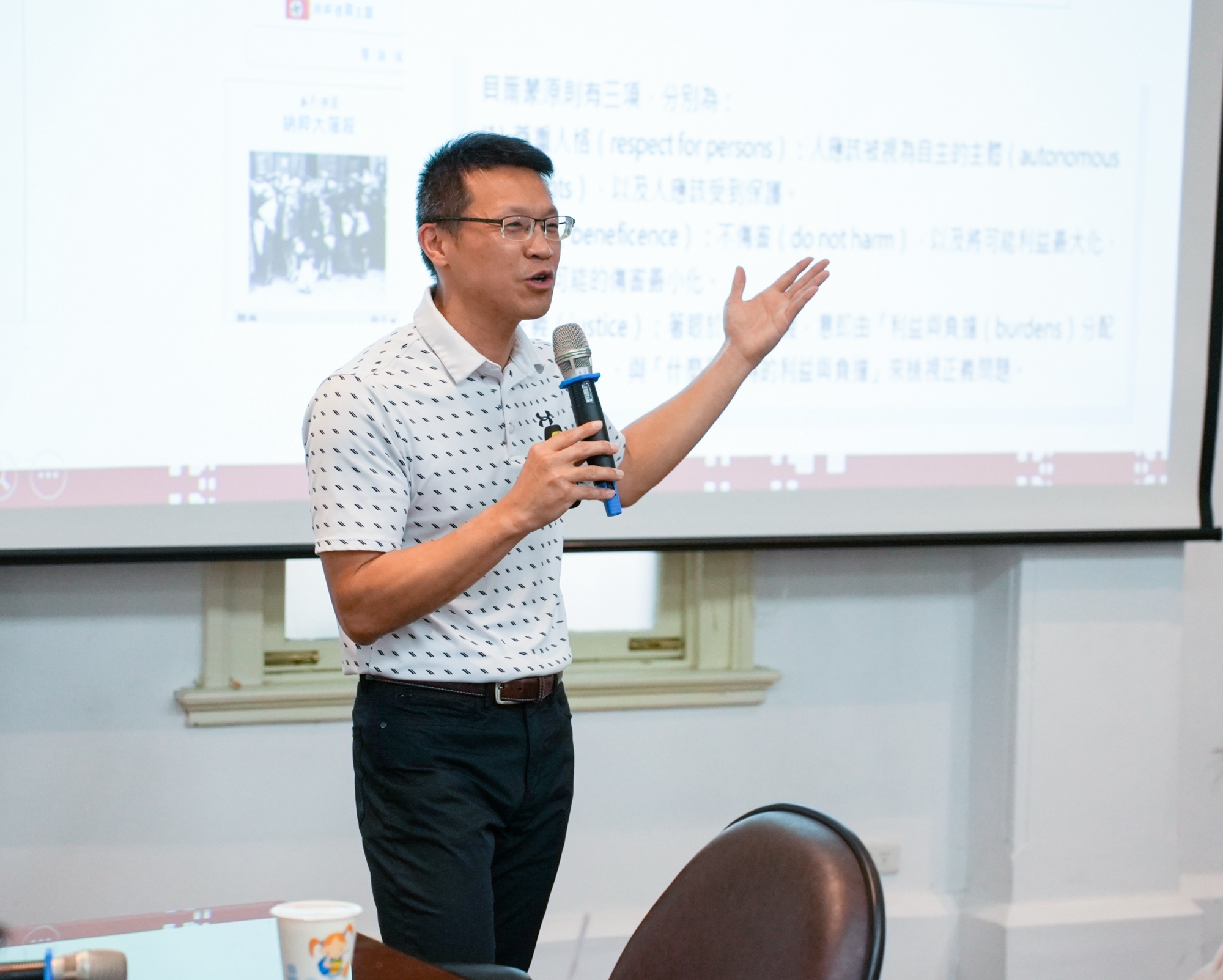
張育愷教授生動說明注重研究倫理之重要性及其規定
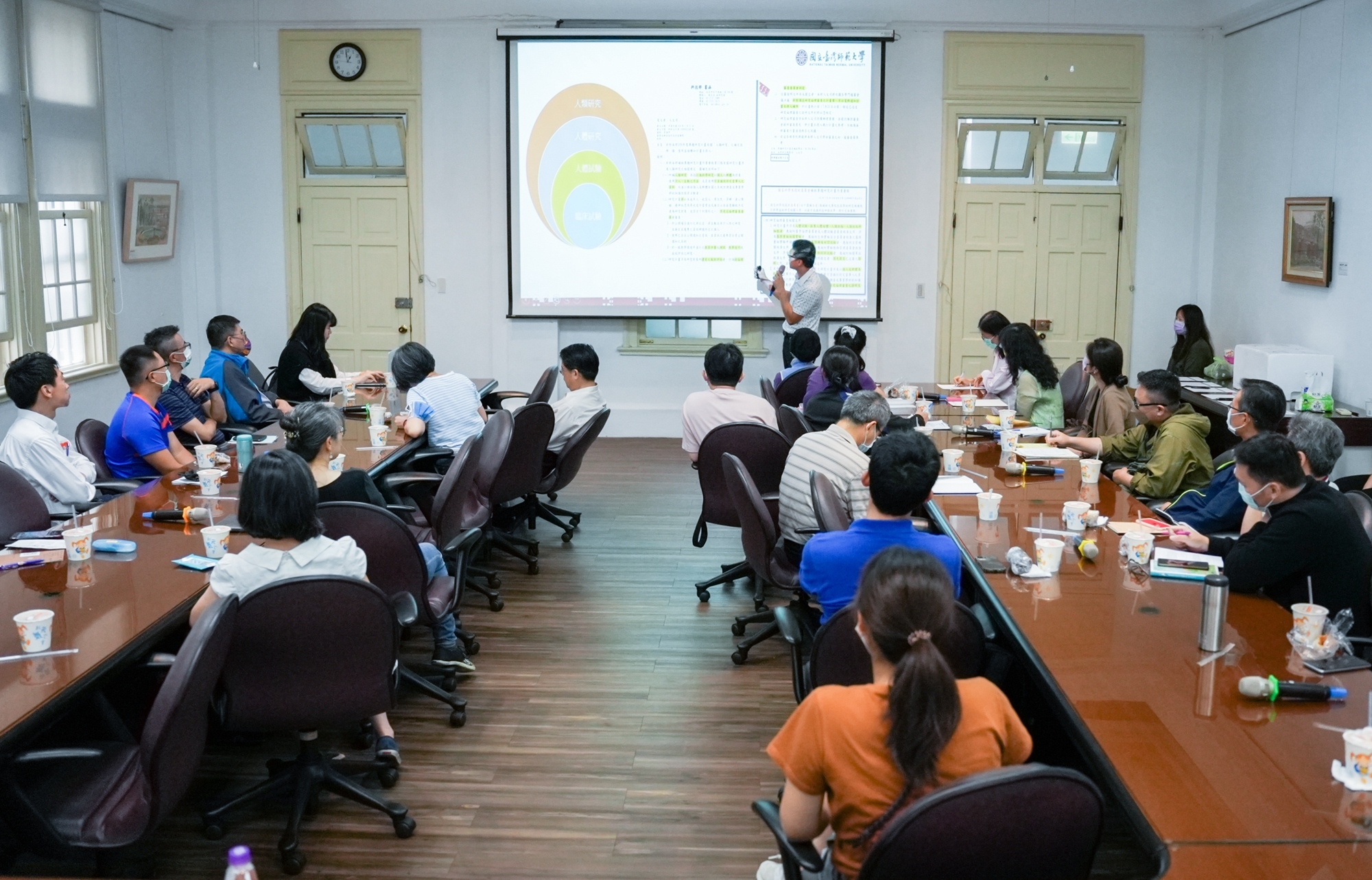
張育愷教授解釋說明有關人類研究之研究倫理相關規定
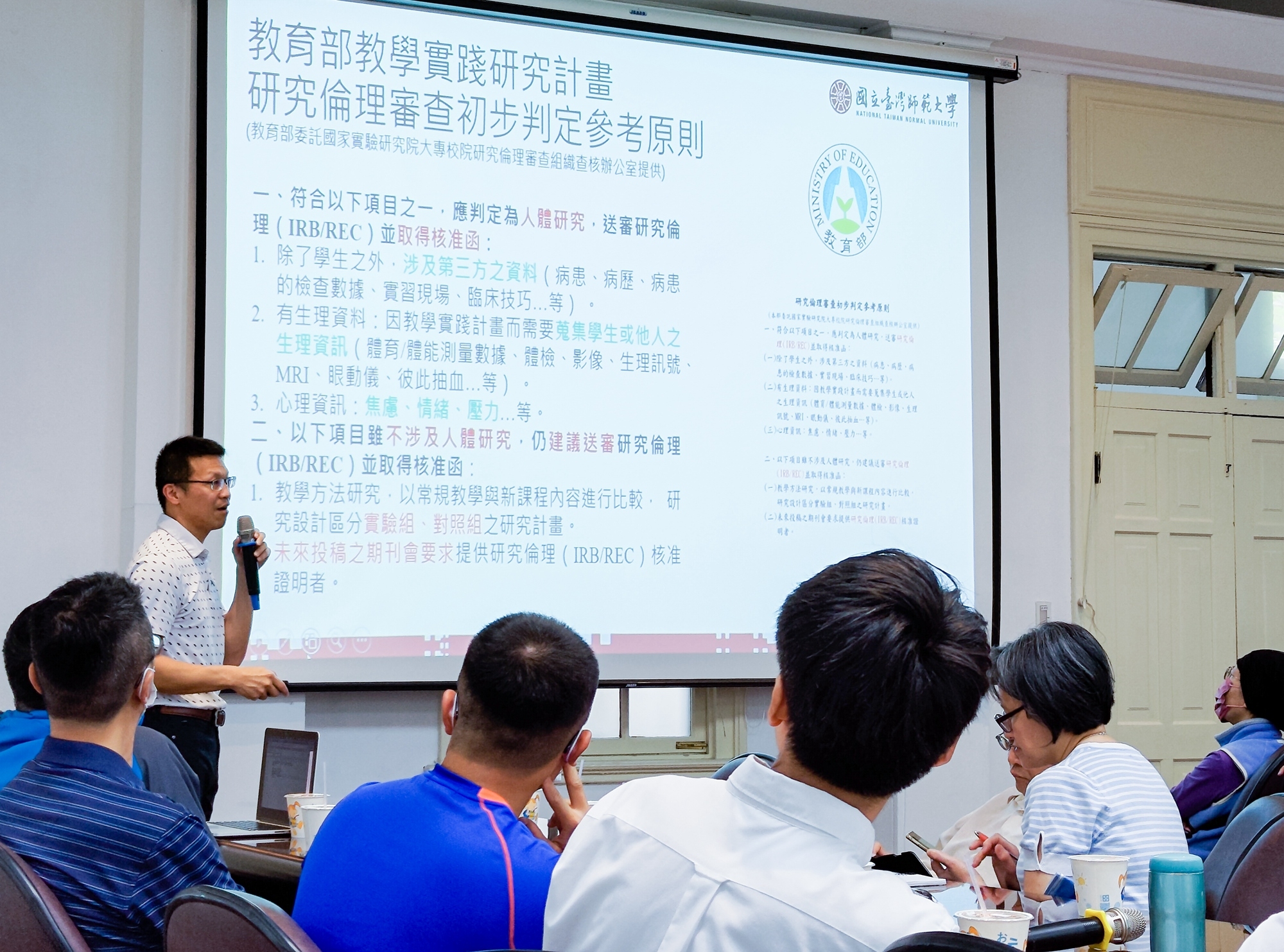
張育愷教授說明教育部教學實踐研究計畫研究倫理審查初步判定參考原則
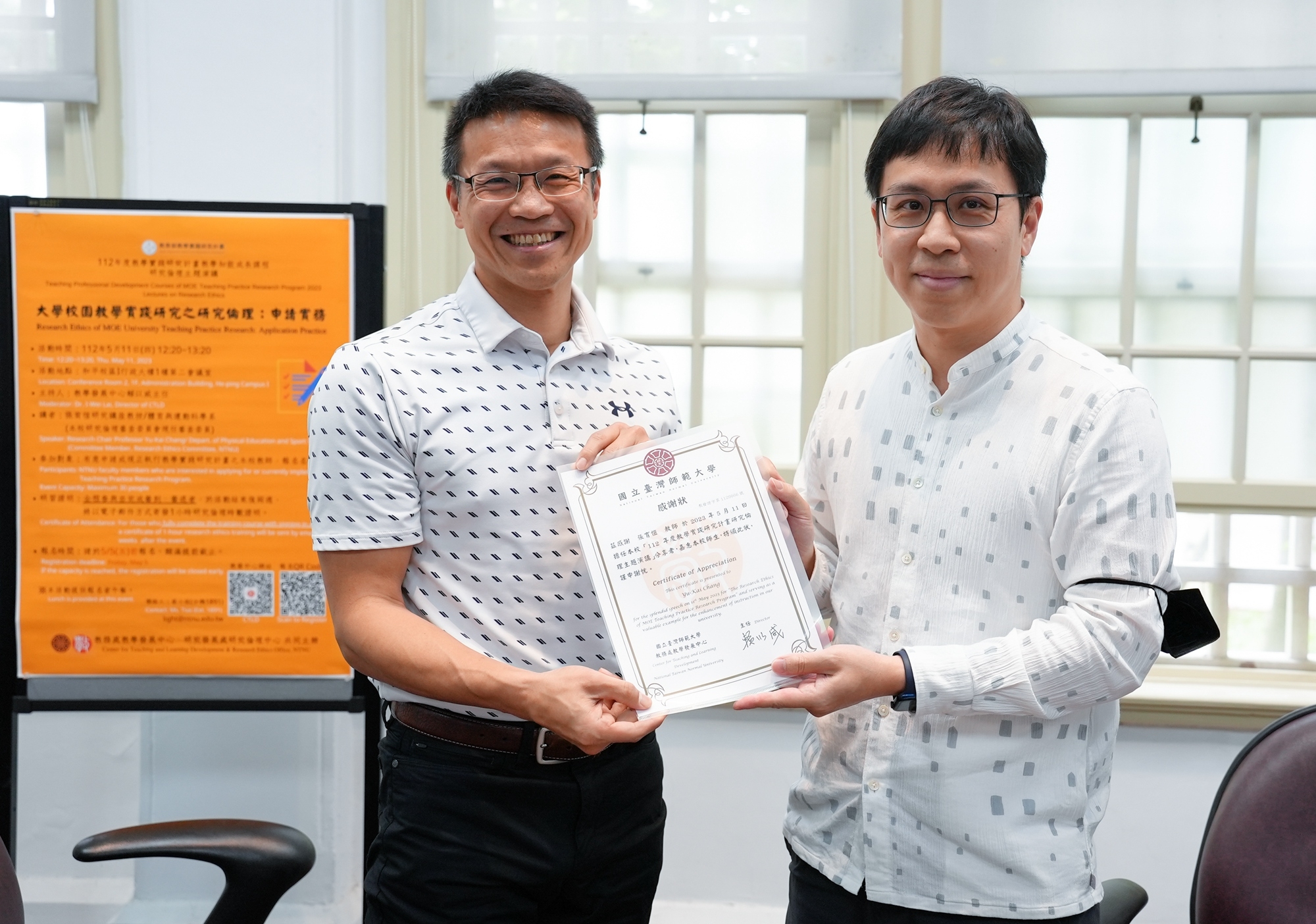
教學發展中心賴以威主任頒發感謝狀給講者張育愷教授
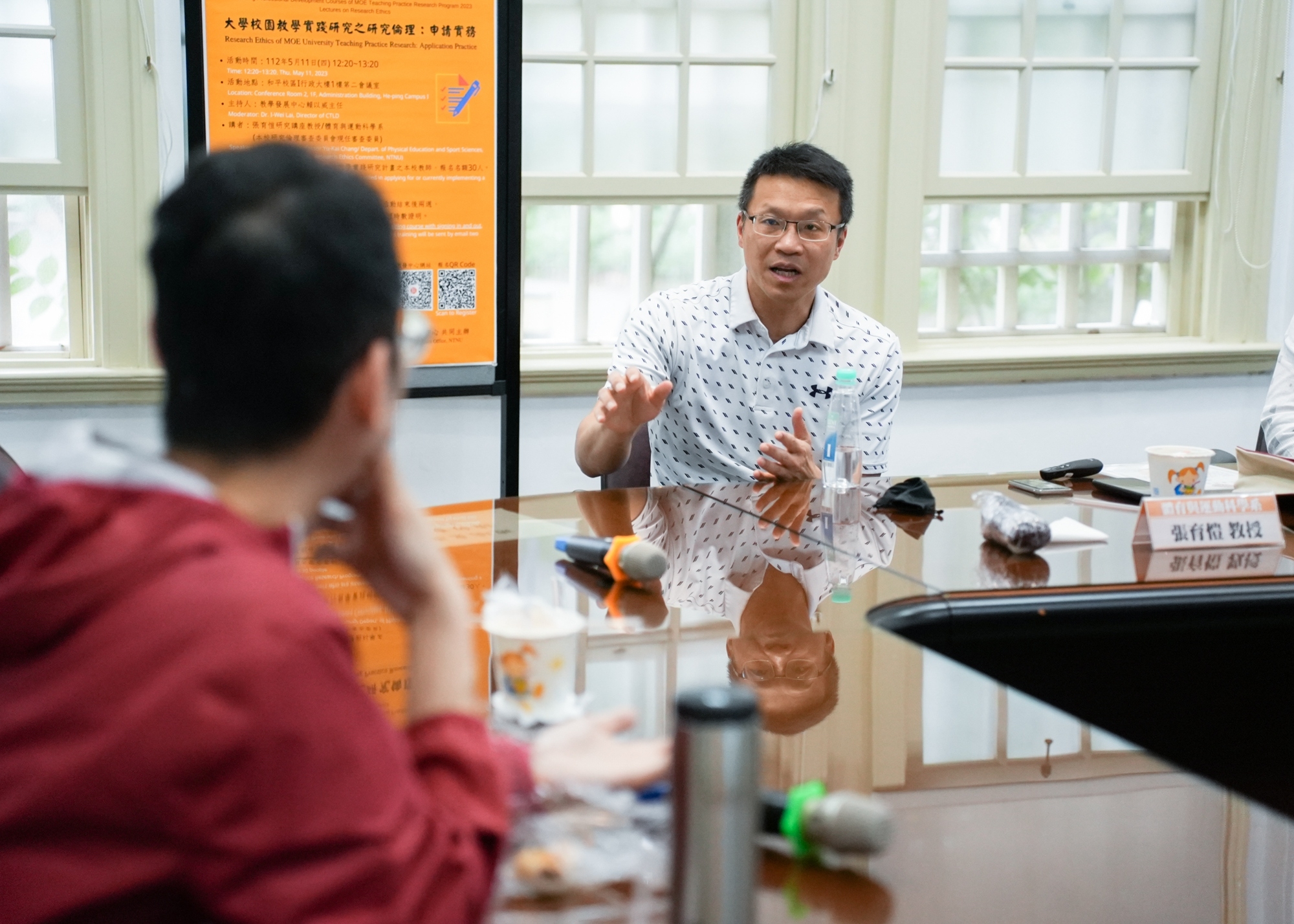
張育愷教授回應現場教師提問研究倫理問題